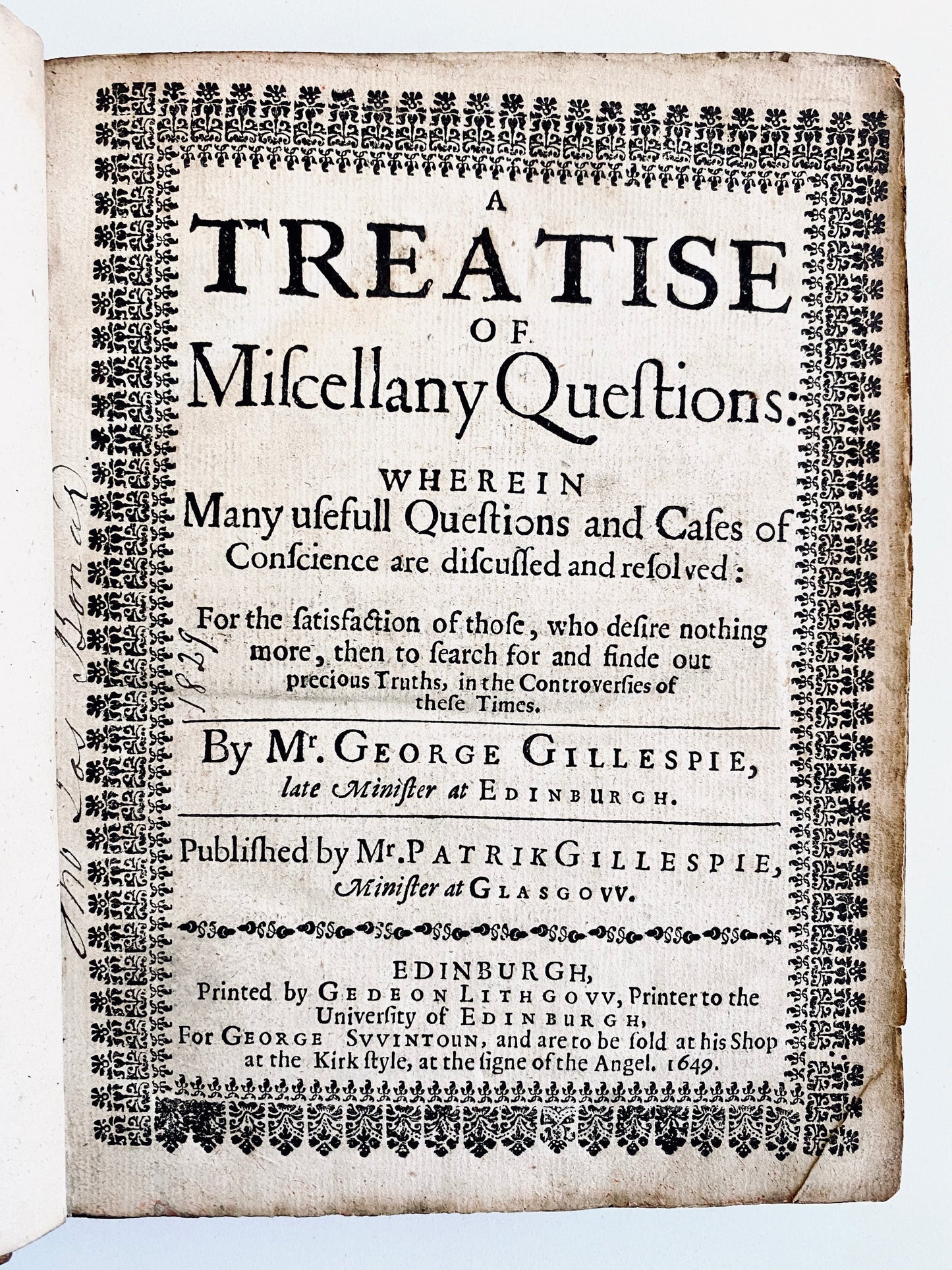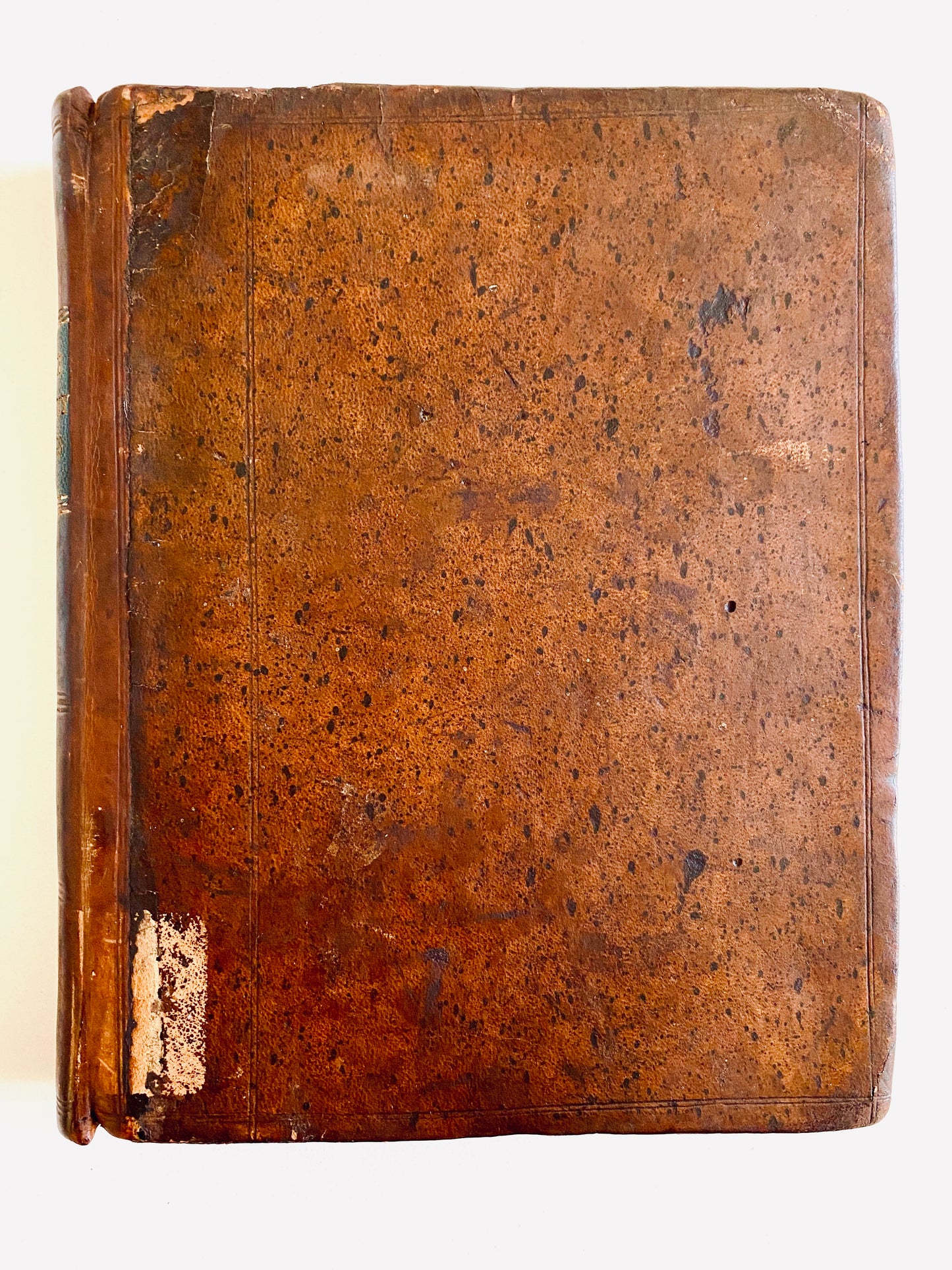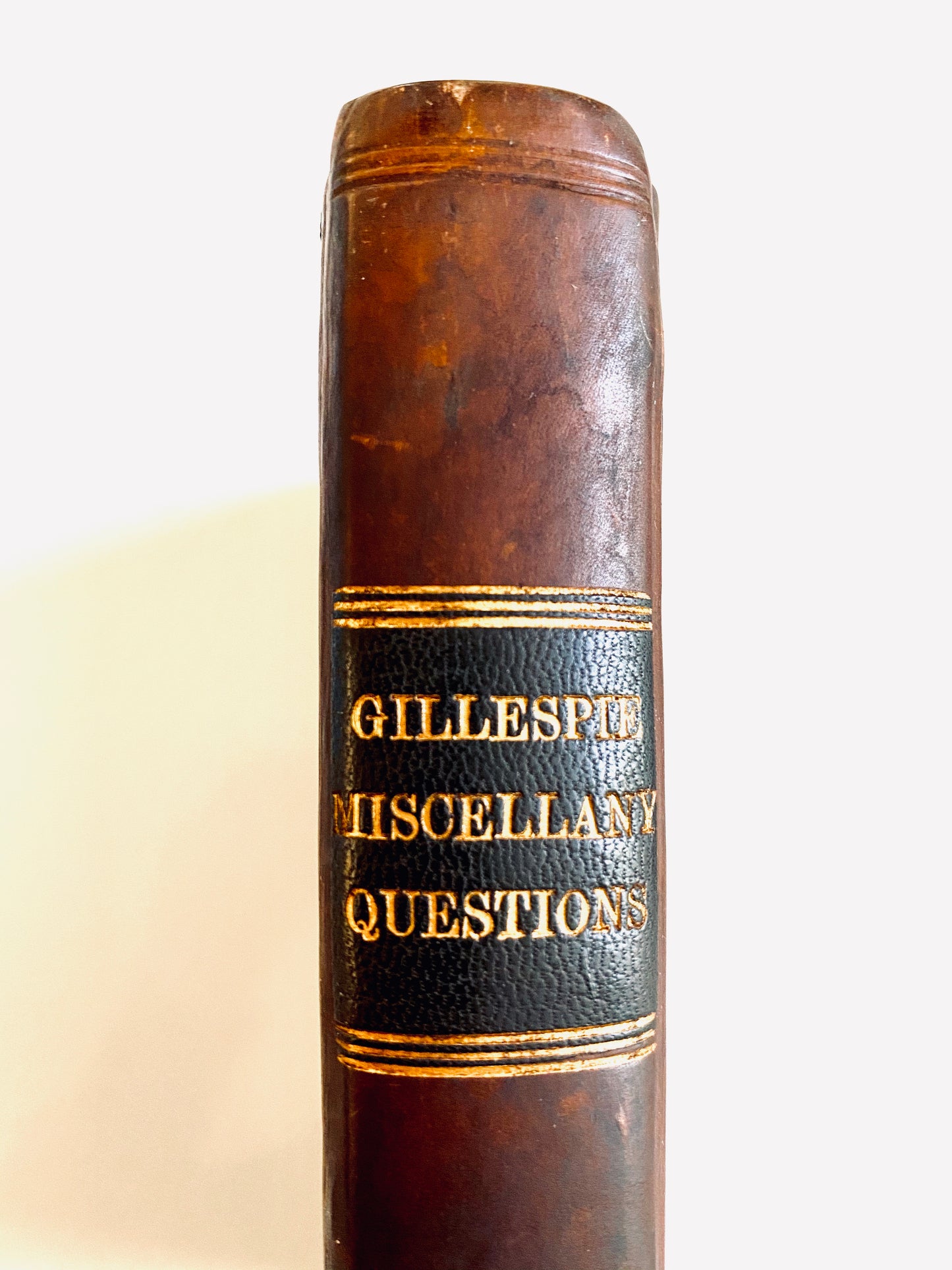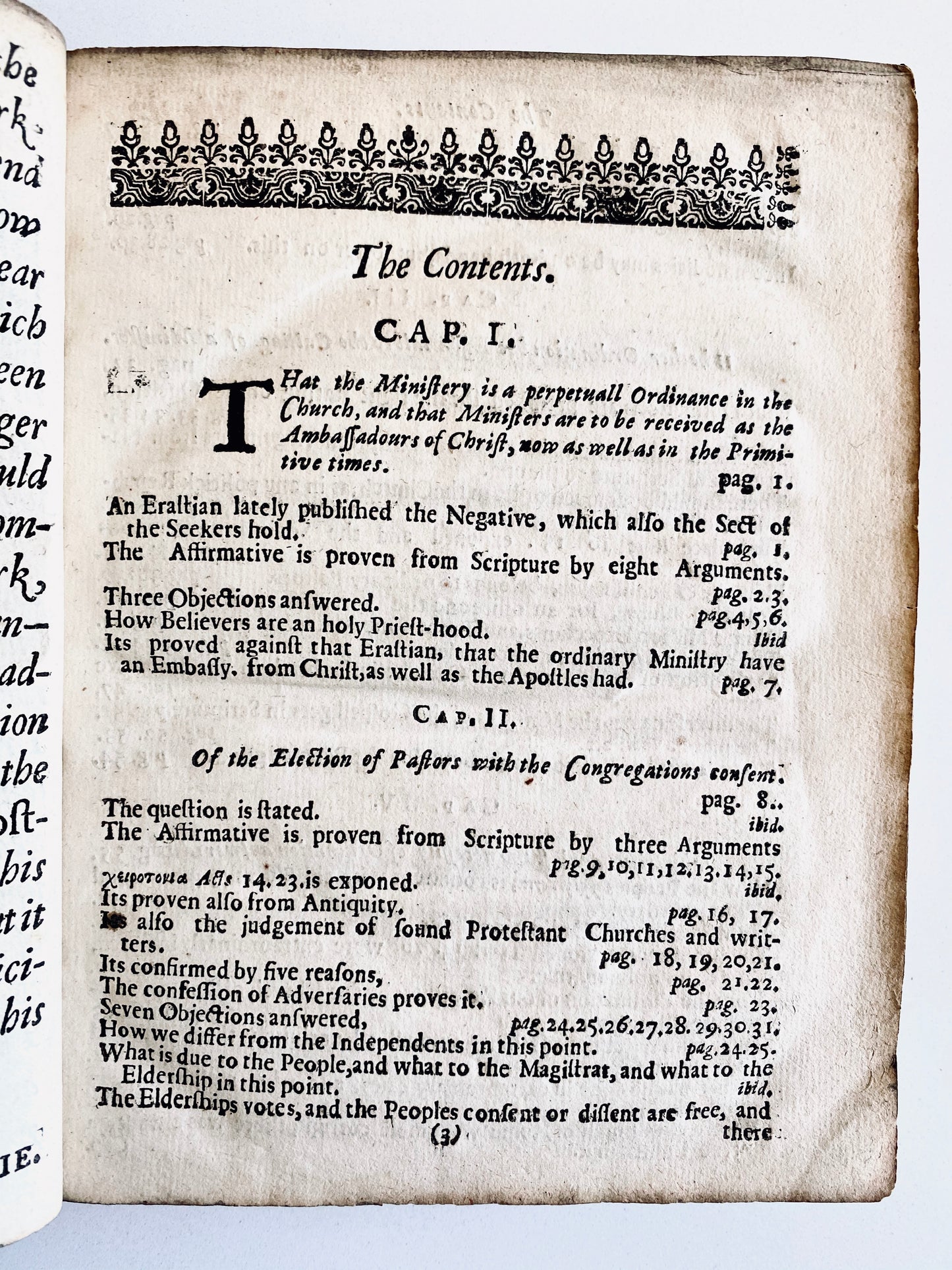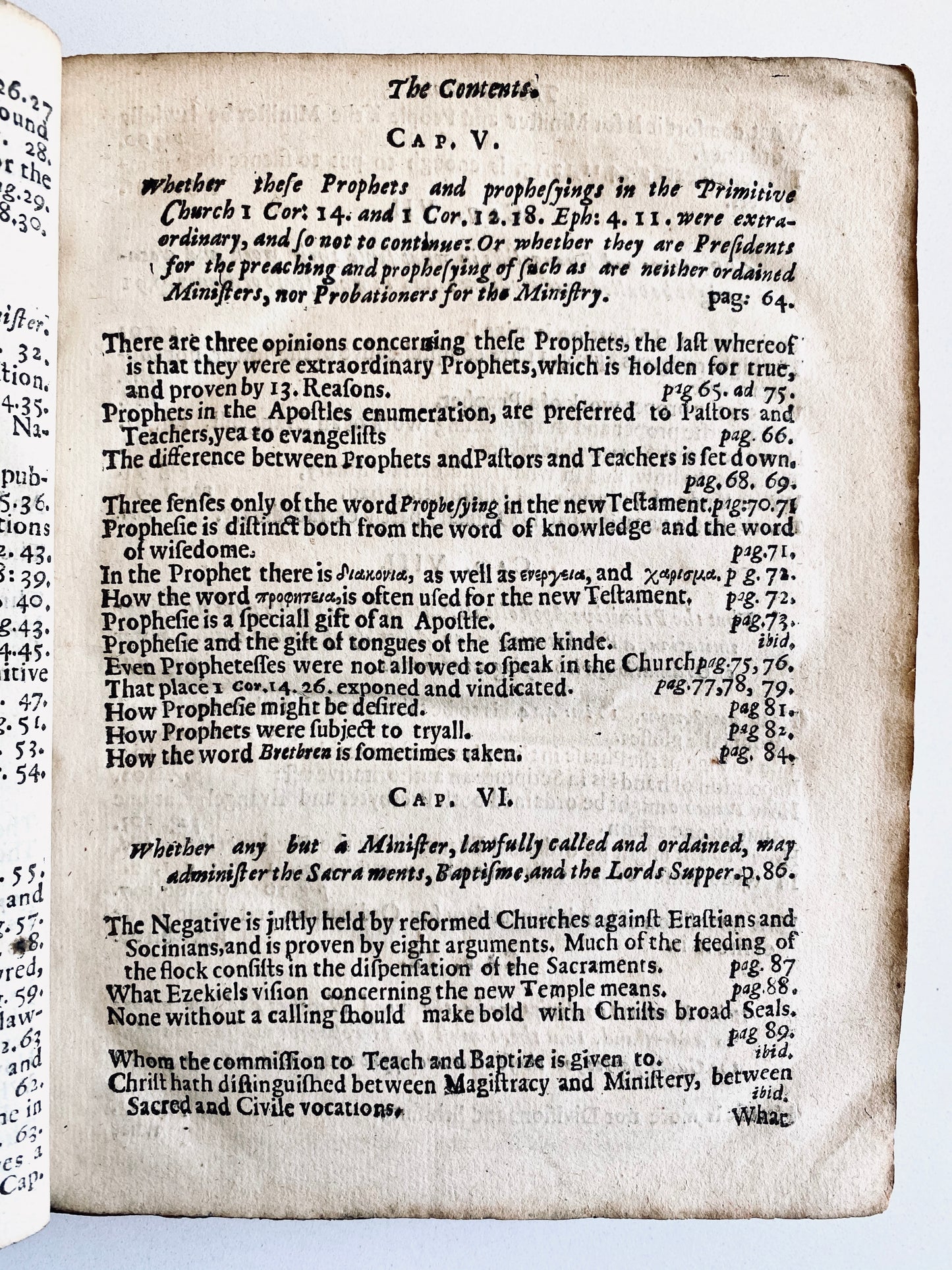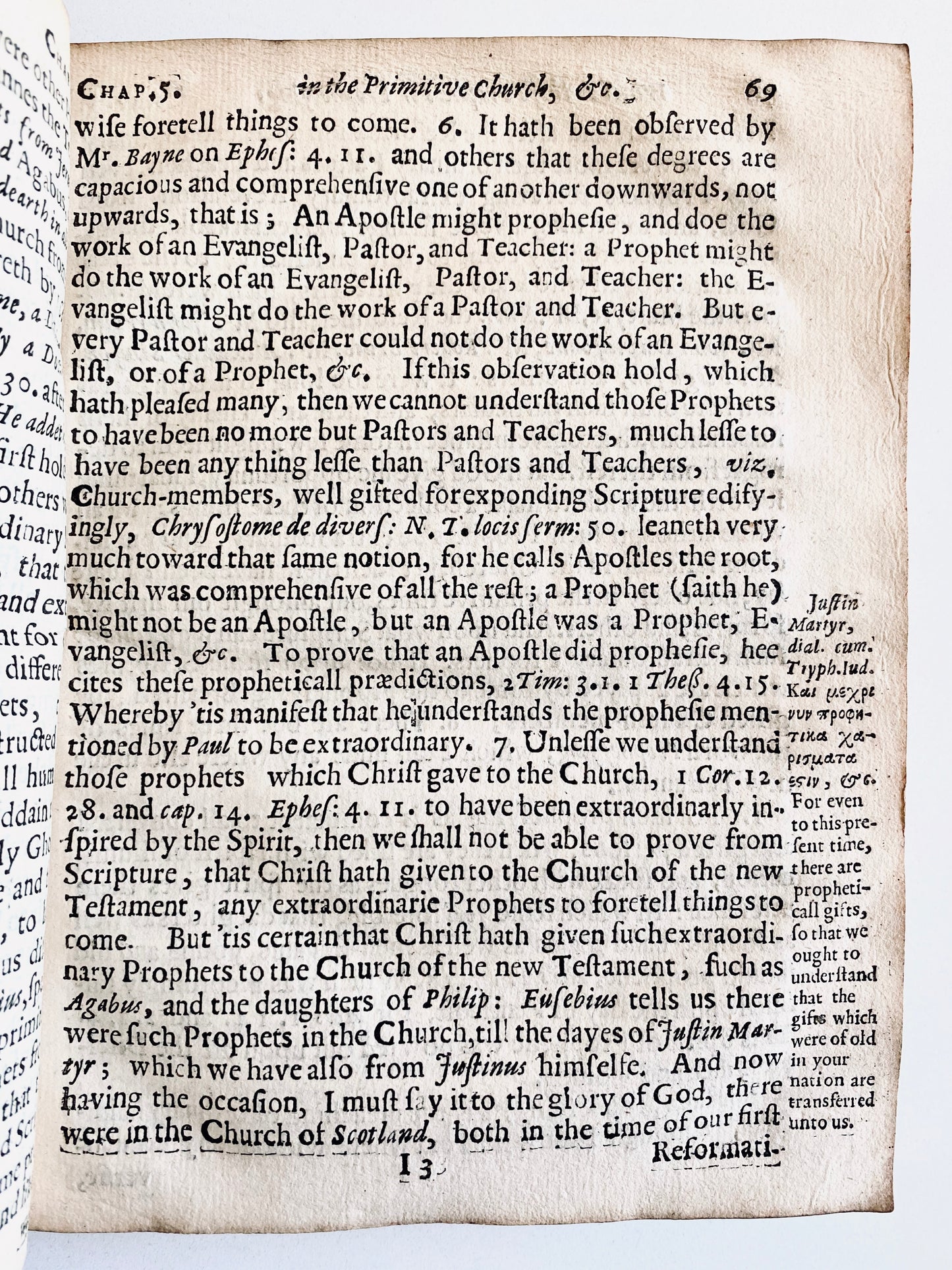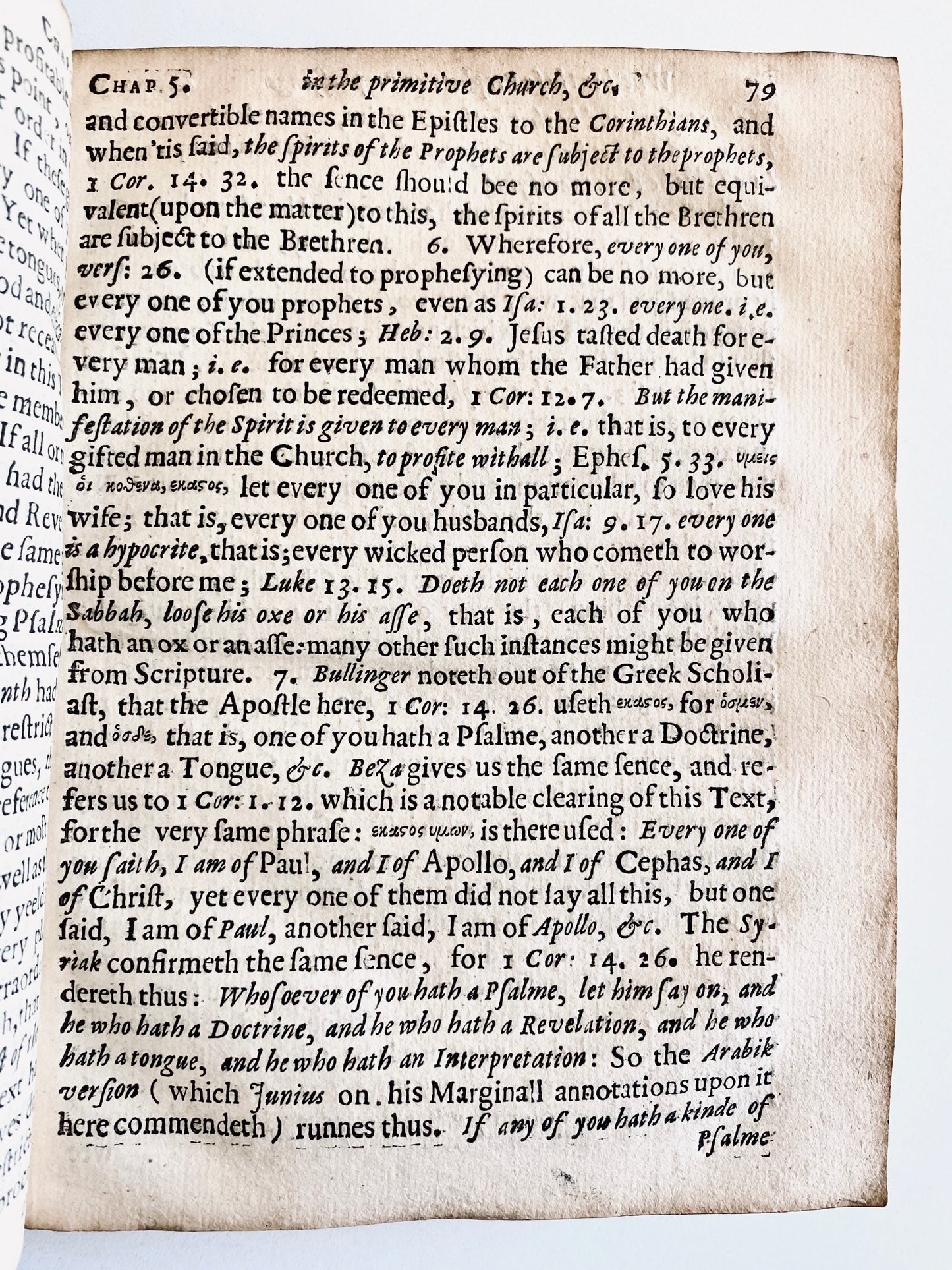Specs Fine Books
1649 GEORGE GILLESPIE. Scottish Covenanter on Questions of the Time - Continuation of Prophetic Gifts, Lay Ministry &c
1649 GEORGE GILLESPIE. Scottish Covenanter on Questions of the Time - Continuation of Prophetic Gifts, Lay Ministry &c
Couldn't load pickup availability
A very scarce original Scottish Covenanter work by George Gillespie [1613-1648]. A member of the Westminster Assembly, he was deeply vested in the Scottish National Covenant and this particular work is of peculiar value as he addresses the sort of "hot button" issues of his time.
As an example, heavy traffic in multiple sections is given to the question of the the continuation of the gift of prophecy as described in Corinthians. The gift was commonly held to be in operation among many of the Covenanters, but because of its lack of historical continuity, needed theological moorings. People like Alexander Peden [actually known as Peden the Prophet] were already so-engaged actively at the highest levels of leadership. He deals with whether lay persons could preach, offer the sacrament. With the Covenanters on the run and many of their pastors being executed, this was of pressing, pastoral interest. Also attempts to explore what a true Heresy is and to what extent a good, regenerate heart may live in the same body with an "unsound head," etc.,
This copy handsomely preserved and bearing the bookplate of William Mackenzie, probably 17th or early 18th century, with three lions and a shield. Also with the ownership signature of John James Bonar, brother of Horatius and Andrew Bonar and himself minister at Greenock.
Gillespie, George. A Treatise of Miscellany Questions: Wherein Many Useful Questions and Cases of Conscience are Discussed and Resolved: For the Satisfaction of those who Desire Nothing More then to Search for and Find Out Precious Truths, in the Controversies of these Times. Published by Mr. Patrik Gillespie, Minister at Glasgow. Edinburgh. Printed by Gedeon Lithgow, PRinter to the University of Edinburgh. 1649. 288pp.
Very nicely preserved. Original 17th century plain calf boards, neatly respined probably in the 19th century with minor remains from label removal at base. No other related signs of ownership aside from very minor tear on blank ffep. Text is really very, very tidy and crisp.
Share
